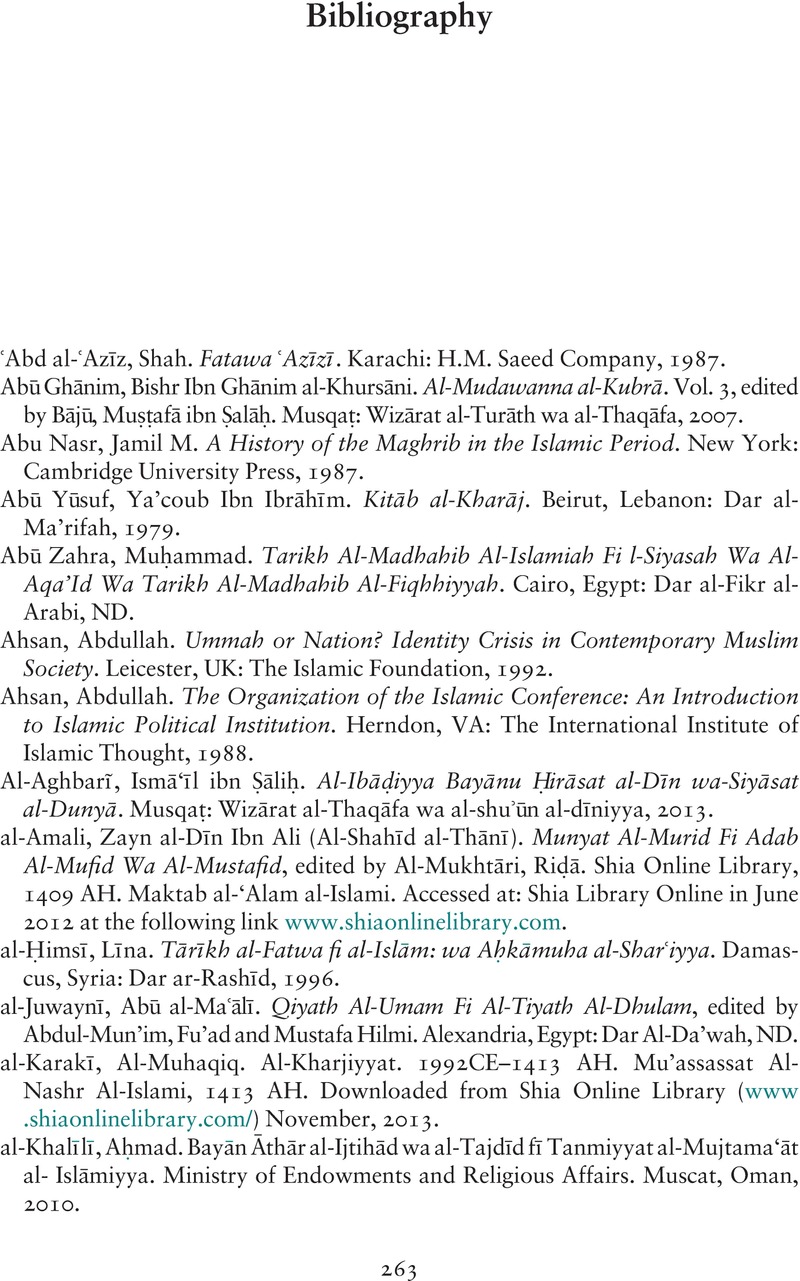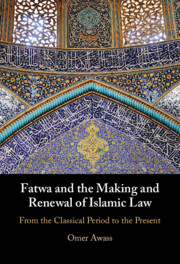Book contents
- Fatwa and the Making and Renewal of Islamic Law
- Fatwa and the Making and Renewal of Islamic Law
- Copyright page
- Dedication
- Contents
- Figures
- Acknowledgments
- Introduction
- 1 Fatwa in the Prophetic and Post-Prophetic Period
- 2 Fatwa in the Classical Age
- 3 Fatwa and the Formation of Islamic Legal Discourses, Institutions, and Society
- 4 The Formation of the Islamic Legal Tradition and the Formalization of Iftāʾ within the Legal Schools
- 5 Fatwa in the Age of the Preponderance of Legal Schools
- 6 Colonialism, Islamic Law, and the Post-Colonial Fatwa
- Conclusion
- Glossary
- Bibliography
- Index
- References
Bibliography
Published online by Cambridge University Press: 11 May 2023
- Fatwa and the Making and Renewal of Islamic Law
- Fatwa and the Making and Renewal of Islamic Law
- Copyright page
- Dedication
- Contents
- Figures
- Acknowledgments
- Introduction
- 1 Fatwa in the Prophetic and Post-Prophetic Period
- 2 Fatwa in the Classical Age
- 3 Fatwa and the Formation of Islamic Legal Discourses, Institutions, and Society
- 4 The Formation of the Islamic Legal Tradition and the Formalization of Iftāʾ within the Legal Schools
- 5 Fatwa in the Age of the Preponderance of Legal Schools
- 6 Colonialism, Islamic Law, and the Post-Colonial Fatwa
- Conclusion
- Glossary
- Bibliography
- Index
- References
Summary

- Type
- Chapter
- Information
- Fatwa and the Making and Renewal of Islamic LawFrom the Classical Period to the Present, pp. 263 - 272Publisher: Cambridge University PressPrint publication year: 2023



